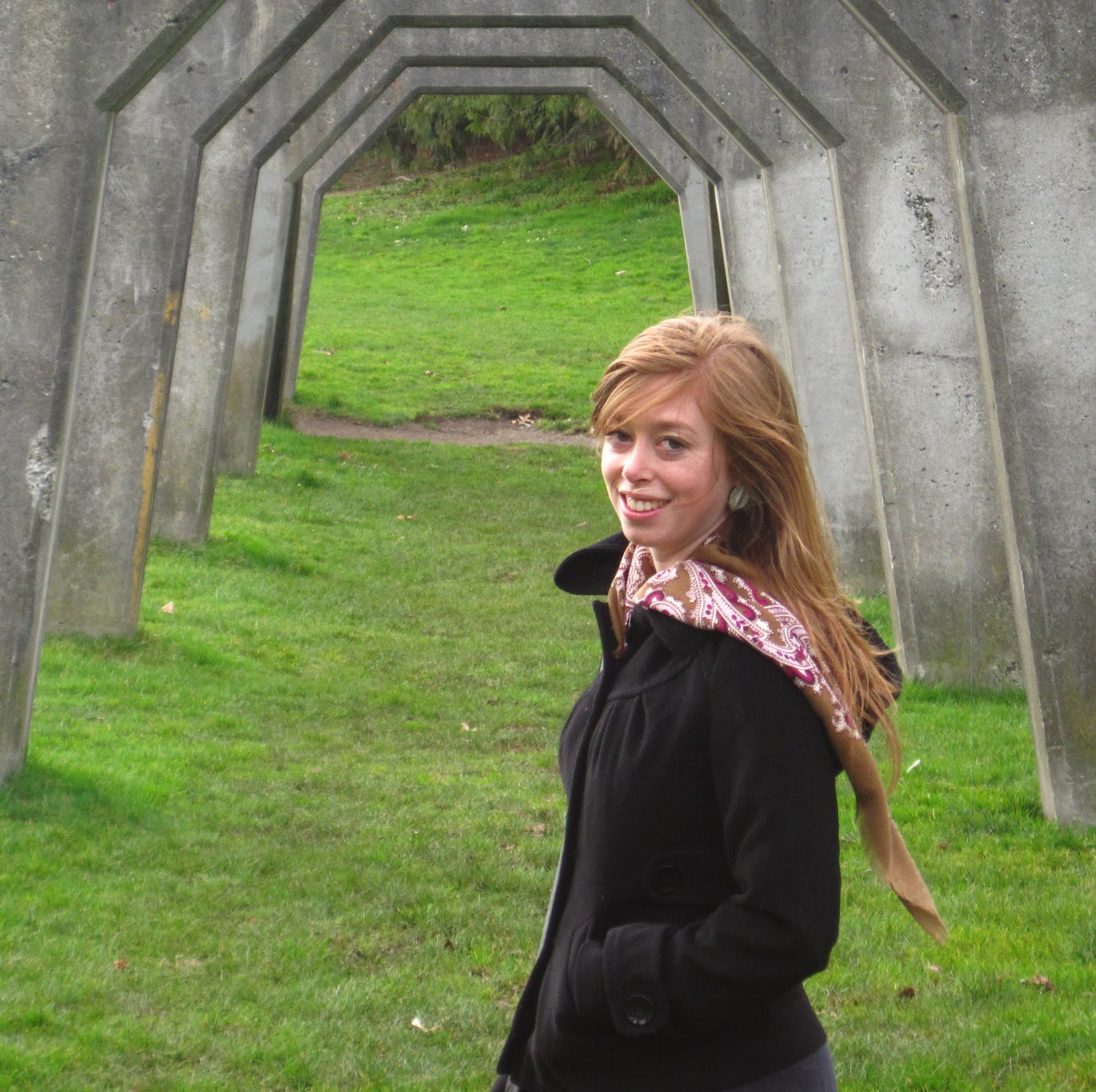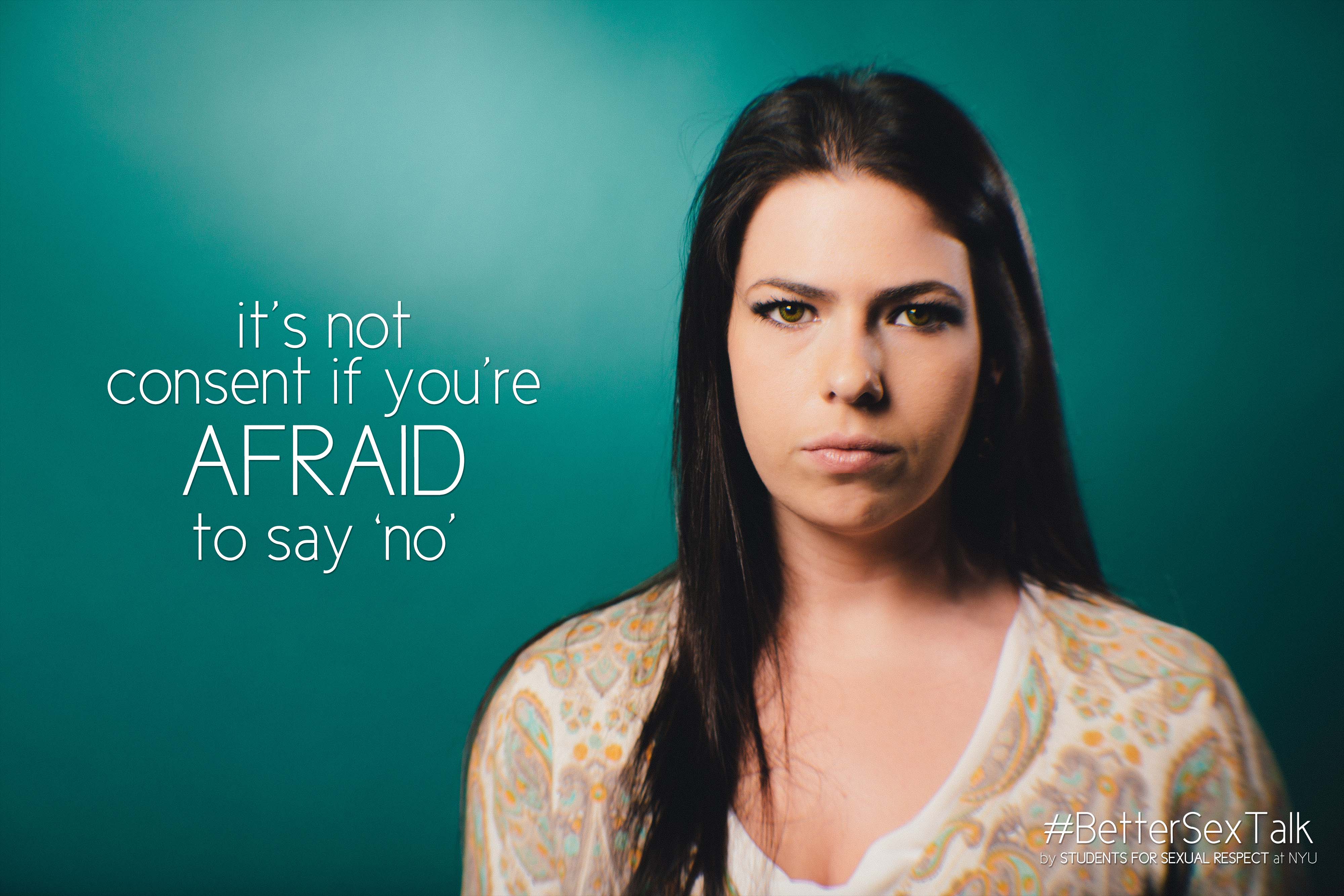Here's the Sex Talk That You Never Got in High School

By:
Josy Jablons, an undergraduate at New York University and president of Students for Sexual Respect, is trying to change the conversation around sex education with an enlightening campaign called #BetterSexTalk. One of the goals of the image-based initiative is to fill in the gaps of inadequate sexual education. Participants from different communities on campus are asked to answer this simple question: "If you could give one piece of advice to a younger sibling about sex, what would you say?" Their answer is paired with their image.
 #BetterSexTalk - twitter.com
#BetterSexTalk - twitter.com
Think back to your first sex education lesson in school. Was it in middle school? Or perhaps part of a high school health class? Was it focused on abstinence only? Did it cover sexual violence?
I attended public school in Southern California, and my first school-based sex education lesson was in middle school science. As part of our introduction to sexual intercourse we watched an afterschool special from the 1970s titled "My Mom's Having a Baby."
The film, which displayed cartoon sperm swimming after an egg dolled up with big eyes and long eyelashes, did a perfunctory job of teaching us how babies are made, but not much else, and I remember little of the lesson.
In her own sex education courses, Jablons found them merely adequate, and in some aspects the activist had to learn on her own.
"Frankly, I didn’t learn the concept of 'affirmative consent' until I delved into my own activism; essentially, my sex ed. was self-taught," Jablons told ATTN: via email. "I do remember my lessons in middle school: discussions about HIV, STDs, condoms, birth control. I remember a specific assignment to present facts about Chlamydia to the class. And I’ll never forget the palpable humiliation and stigma within that classroom."
For me, high school health class filled in many of the gaps left by middle school sex ed. -- including a comprehensive understanding of sexually transmitted infections, what a clitoris is, abortion, and how to practice safe sex. I also vaguely recall being reminded that "no means no" and that people shouldn't feel pressured into having sex. However, most of the conversation was housed under the frame of "sex is an act between partners (particularly married partners) to make a baby." And I was lucky I received a relatively comprehensive education. According to a 2014 report from Tufts University School of Medicine, 27 states -- over half the country -- require an emphasis on abstinence only sex education.
Emphasis on the fact that sex can result in another living being is important—and crucial for preventing teen pregnancy—but this education should be paired with information about contraception and STI prevention. By framing sex as just an act "to make a baby" is woefully narrow for maturing teens who are potentially heading into jobs or college. In this way sex education often forgets the other nuanced complex things that sex can be: a part of a healthy relationship, pleasurable, abusive, casual, special, awkward, coerced, equal, lust-driven, experimental, queer, a one night stand, or rape.
Josy Jablons wants to change this. She wants to expand the topic of sexual education to include conversations about affirmative consent ("yes means yes"), sexual coercion, and healthy relationships. She's starting the conversation on her own college campus.
"Additionally, as a queer woman, I was disappointed that information regarding LGBTQ sexuality was altogether absent," Jablons said. "Yes, I appreciate what I learned, but it wasn’t enough. I should have graduated high school with a strong understanding of affirmative consent, sexual coercion, healthy relationships, and more. Instead, I spent two years in an emotionally and sexually abusive relationship because I simply didn’t recognize it for what it was."
Jablons hopes the images, created in collaboration with the president of the Feminist Society Meghan Racklin, and NYU student photographer Emilio Madrid-Kuser, will spread through social media and prompt a broader dialogue around sex education. Jablons notes that the project is catching on. "Students from universities across the country are beginning to contact me about expanding the #BetterSexTalk project beyond NYU, which really excites me," Jablons stated in her email.
As far as long-term goals are concerned, Jablons has her eyes on legislation like Sens. Tim Kaine (D-Va.) and Claire McCaskill's Teach Safe Relationships Act, which was introduced to the Senate in February of this year, and hopes to "improve health education in public secondary schools where it is taught, by including information on “safe relationship behavior” which would focus on preventing sexual assault, domestic violence, and dating violence."
"I hope that #BetterSexTalk will encourage young people to push for legislation that mandates the comprehensive sex education we so desperately need," Jablons stated.
How would Jablons teach a sex education course? Overall she is sure of one thing: "My health class would emphasize sex positivity."
"A big goal of #BetterSexTalk is to eradicate the pervasive stigma surrounding sex," Jablons continued. "Personally, I never got 'the talk,' and I want to ensure that everyone does. More importantly, whether in school or at home, I want this 'talk' to be comprehensive, medically-accurate, and genuine. Everyone deserves access to complete sex education; it is our fundamental human right."
